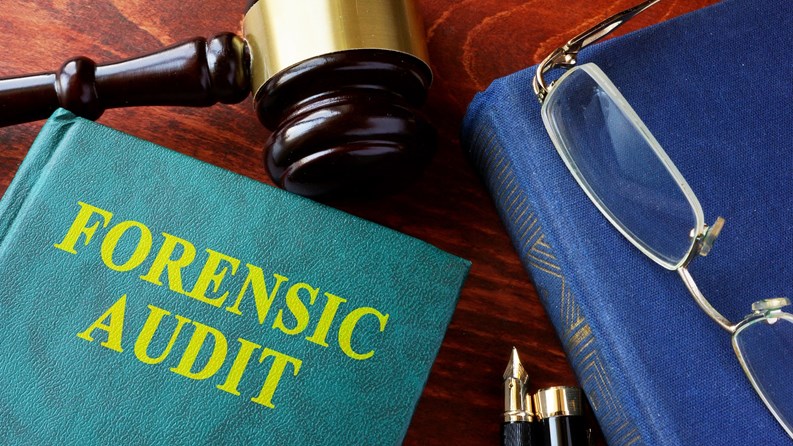In this article, you will find insight into the purposes for conducting audit For forensic in India and the procedure of the audit in corporate sectors.
ASSOCHAM and Grant Thornton after conducting a joint study finds that bribery, fraud, corruption, money laundering, tax evasion, window dressing, etc., are the most common frauds in the corporate sector in India.
Forensic accounting or forensic suit in India is conducted by finance professionals to settle disputes regarding fraudulence, allegations, and misconduct in the corporate sector.
The primary motive for conducting a forensic audit is to bring transparency and accountability to the transaction system.
The Purpose of Conducting a Forensic Audit
There are several reasons for which a forensic audit is conducted in the corporate sector. The reason is as follows:
-
Cases of corruption
When investigating fraud, the auditor will look for several factors which play primary roles in the fraud. In such a case, the fraudster uses the company’s funds for personal gains as they are well conned to the company.
In case, the senior manager of a company of grants a huge amount to an employee who frauds the company thereafter, it will be considered a fraud on his part as well. Even if the manager was not directly connected to the fraud, the audit will be conducted on him as well. Corruption in the corporate sector also includes bribery.
If a person offers money to gain personal profits, the forensic audit will consider its corruption. The purpose of bribery may also include handling sensitive data, employee information, and the company’s tender quotes as well. Extortion is also considered corruption. In case, a person asks for money to provide any contract or any award to a company, it will be considered extortion corruption. You Can also Know about Incorporation of Company Online Process.
-
Mishandling of funds
Mishandling of funds or misuse of assets is one of the most prevalent frauds in the Indian corporate sector. Assets destruction may include cash mishandling, making inappropriate invoices for personal gains, paying to unknown persons who are connected with the company, misuse of funds, etc.
Frauds in the Financial sectors
Companies often make false financial statements to show their enough ability in handling higher transactions. The primary motive of colonies to show false statements of finance is to collect improved liquidity, collect enough funds for employee payments and bonuses, or handle the pressure for better performance in the market trends.
Companies take several ways to make false financial statements. The frauds include making false records of the company’s accounts, hiding their real transactions, not disclosing the real financial statements, and not applying for the standard financial reports.
How the Forensic Audit Investigation is Performed
A forensic auditor is a skilled person to conducts the forensic audit task in the most appropriate ways. There are several steps through which the whole investigation is conducted. The steps are as follows:
- Planning the Whole Investigation Process
If you hire a forensic auditor for your company, the auditor will focus and try to understand the purpose of the audit. If you are sure about the possible fraud and seek guidance from a forensic auditor he may plan accordingly to achieve the objectives:
-
- At first, the auditor will identify the fraud that has been done to your company.
- In the next process, the Forensic Audit in India will find out the time during which the fraudster took the advantage.
- Next, he will find out the process through which the fraud was done to your company.
- When he will be conformed to the fraud, the next task is to identify the persons involved in the fraud and decide the total amount that the fraudsters have laundered.
The auditor collects every necessary information that will work as strong evidence to present in the court. The final task of the auditor is to guide the company in taking preventive measures against fraud.
- Significance of Evidence in Forensic Audits
The most significant part of the forensic audit is to find out the types of fraud to the company and the process through which the fraud was conducted. Therefore, the evidence is the most significant factor to find out the fraud. The author collects every necessary evidence to carry out the fraud.
The evidence must be influential enough to be submitted for court purposes, thereby revealing the schemes related to the fraud, the total financial loss of the company, and the people who are the most affected by the fraud. The evidence must also have a logical flow that the court will easily understand and consider for further process.
The auditor must be cautious enough to protect every necessary information from being damaged or altered for immoral purposes by the miscreants. Forensic auditors may follow several ways to collect evidence. The process may include reconciliation, document reviewing, collecting comparative data from several segments, analyzing software programs from computers, internal sensitive documents, etc.
-
Finding and Interrogating the Suspects
The forensic audit team prepares a report and presents it to the client detailing the fraud. The report submitted by the audit team contains the procedure of investigation, shreds of evidence found in the investigation, the persons who are involved in the fraud, and suggestions to improve internal controls to prevent fraud in the company. The report is complete and the client can submit every detail for submitting to the court.
During the court proceedings, the forensic auditor must be present to brief every piece of evidence that reveals the fraud. The primary purpose of the forensic auditor is to provide details regarding the accounting issues that they have found. The auditor also explains the accounting details to simplify the task and thereby convince the court of the fraud done to their client.
Forensic Audit vs. Internal Audit
The purpose of a forensic audit is to reveal the frauds in the financial transactions that were done for a specific purpose. On the other hand, an internal audit is based on compliance with the company and it also deals with the internal performance of the company.
Your company needs an internal audit if there is an ethical or accuracy lapse or an internal data breach in the information technology has occurred in your company. On the other hand, Forensic audit aims at revealing fraud, leakage of sensitive information of your company, or financial corruption in your company.
Get Your Queries Solved with Vakilsearch:-
Want to get legal support from the most reputed forensic auditors in India? Vakilsearch is your one-stop destination to find every type of legal assistance. Get detailed information about forensic audits for your organization with us and protect your organization from financial fraud.
Read more:










